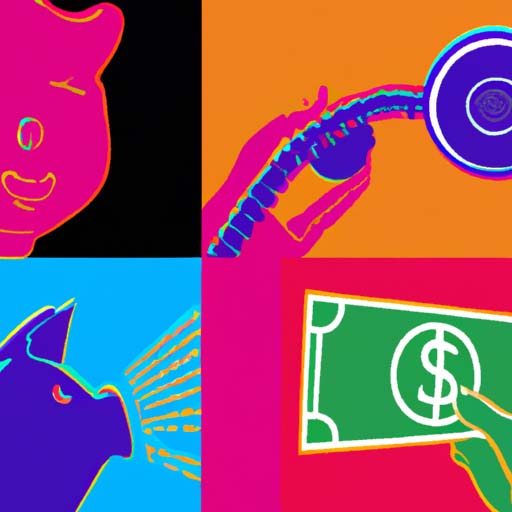Decentralized Finance (DeFi) Demystified
Welcome to a comprehensive guide on Decentralized Finance (DeFi) – the revolutionary technology that is reshaping financial systems worldwide. In this article, we will delve into the essence of DeFi, explore its implications, and uncover how blockchain is transforming traditional finance. Whether you are new to the concept or seeking a deeper understanding, this article will demystify DeFi and provide you with the knowledge you need to navigate this exciting space.
Understanding DeFi
DeFi, short for Decentralized Finance, is a groundbreaking innovation that utilizes blockchain technology to create open, transparent, and permissionless financial systems. Unlike traditional finance, which relies on intermediaries such as banks and brokers, DeFi allows individuals to engage in financial transactions directly with one another, removing the need for intermediaries.
By leveraging smart contracts on blockchain platforms like Ethereum, DeFi applications enable the creation of decentralized lending and borrowing platforms, decentralized exchanges, stablecoins, and more. These applications are accessible to anyone with an internet connection, fostering financial inclusivity and empowering individuals with greater control over their financial activities.
The Advantages of DeFi
DeFi offers several advantages over traditional finance, paving the way for a more efficient, transparent, and inclusive financial system. Here are some key benefits:
1. Accessibility: DeFi eliminates the barriers to entry that have traditionally limited access to financial services. Anyone with a smartphone and internet connection can participate in DeFi, thereby democratizing finance and allowing individuals from all walks of life to access previously inaccessible financial opportunities.
2. Transparency: Thanks to the nature of blockchain technology, all transactions within the DeFi ecosystem are transparent and traceable. This transparency minimizes the risk of fraud and promotes trust among participants, as anyone can verify the accuracy of transactions and the integrity of the system.
3. Reduced Costs: DeFi removes the need for intermediaries, significantly reducing transaction costs. Without intermediaries taking a share of each transaction, individuals can transact directly with one another, resulting in lower fees and faster settlements.
4. Innovation: DeFi has sparked a wave of innovation, paving the way for novel financial products and services. From decentralized lending platforms that offer competitive interest rates to prediction markets and yield farming, DeFi provides individuals with diverse opportunities to explore and grow their wealth.
The Risks of DeFi
While DeFi holds immense potential, it is crucial to be aware of the risks involved. Here are a few key considerations:
1. Smart Contract Vulnerabilities: DeFi applications rely heavily on smart contracts, which are self-executing contracts with the terms of the agreement directly written into code. However, vulnerabilities in smart contracts can lead to bugs, hacking incidents, and financial loss. It is essential to exercise caution and conduct thorough research before engaging with any DeFi platform.
2. Market Volatility: DeFi tokens can be highly volatile, experiencing significant price swings in short periods. While this volatility can present lucrative investment opportunities, it also poses a risk to inexperienced investors. It is crucial to have a clear understanding of the market dynamics and to exercise prudent risk management strategies.
3. Lack of Regulation: As the DeFi space is relatively new, regulations are still evolving. The absence of regulatory frameworks can expose participants to potential scams and fraudulent activities. Conducting due diligence and prioritizing security measures are essential to mitigate such risks.
The Future of DeFi
The future of DeFi holds immense promise as blockchain technology continues to evolve. With ongoing developments in scalability, interoperability, and security, the DeFi ecosystem is set to mature and attract mainstream adoption. Regulatory frameworks are also expected to take shape, bringing added legitimacy to the industry.
As decentralized finance gathers momentum, we can expect traditional financial systems to be reshaped, empowering individuals and revolutionizing the way we transact, invest, and even think about money. Embracing this transformative technology opens up a world of possibilities, where financial services are accessible, transparent, and tailored to the needs of individuals rather than a select few.
In conclusion, Decentralized Finance (DeFi) is disrupting traditional finance by leveraging blockchain technology to create transparent, inclusive, and efficient financial systems. With its numerous advantages and inherent risks, DeFi presents a new frontier for individuals seeking greater control and autonomy over their finances. As this technology continues to evolve, it is crucial to stay informed, exercise caution, and embrace opportunities responsibly.



